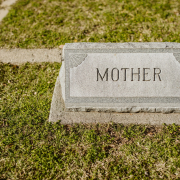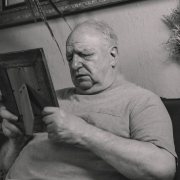Why is a Will Important for Pre-Planning?
When people die, their family is responsible for settling the estate. If you have certain wishes you want to be upheld upon your demise, it is vital to execute a will. However, most people push off writing a will because it’s as if you’re courting death, and accepting your departure in this ephemeral world is imminent. Bear in mind, drafting a will is part of funeral pre-planning and is beneficial because it protects your family and all your assets.
Besides, everyone knows that life is not finite. Death is an inevitable fact for all human beings. Accepting this and planning ahead of time can make a big difference in executing your wishes and caring for the ones left behind. Moreover, a will allows you to stipulate which organizations and charities to support with your assets, especially if you want to leave a lasting and impactful legacy behind.
The chosen executors of the will ascertain that your final wishes are followed. After settling any debts, all your assets will be disbursed to your chosen beneficiaries. Without a will, the government shall decide how to distribute the things you leave behind. Your assets will not immediately go to your family as disputes can happen. The government takes a long time to decide on these matters, resulting in hefty legal fees that are deducted from your estate. It also creates additional stress for your family. If you’re not sure about the importance of writing a will, keep reading. Check out the five crucial reasons why a will is not optional but necessary:
Ascertain Your Assets Go to The Correct People
When you write a will, you can rest in peace upon your demise with the knowledge that your assets will go to the right people. This document ensures that the people you want to inherit a specific asset will indeed receive it. If you don’t draft a will, individuals or charities you want to benefit from your possessions may not receive them. Dying intestate or without a will means the probate court decides who the rightful heirs will be. Thus, writing a will can help you distribute assets that have monetary and sentimental value. Unfortunately, some assets do end up causing conflict among the heirs. Having a will assures that the right people will get the asset you leave behind.
Provide heirs With Stability and Security
If you have minor kids when you pass away, a will safeguards their future. In your will, you can stipulate who are the guardians you deem fit to assume responsibility for your children. Without a will, the state shall determine who receives custody of your kids or where they’re placed. On top of that, drafting a will allows you to write a trust. This means when your kids turn a certain age, they can inherit your savings and other assets like land, stocks, bonds, etc. Planning ahead with the proper documentation means you can provide your children financial stability and security once they become adults.
Avoid Conflict and Tedious Legal Battles
Dying without a will means the probate court will decide who receives the assets. Sadly, many surviving family members have ended up fighting over assets. If you want to eliminate this problem, write down your wishes in a will. For example, if a daughter dies in an accident and gets millions in a lawsuit, an estranged father may fight for his share of the money. Sadly, without a will, the state can divide up this asset and leave other relatives with barely anything. If you want to protect your loved ones, write a will to stipulate who is entitled to receive what particular asset. It saves your family members from severing relationships due to property distribution.
Help in Lowering Estate Taxes
When you die, your heirs have to pay taxes. On top of that, if things go to court, legal fees will pile up. Both of these things can reduce the value of your estate. The inheritance you leave behind will get eaten up instead of going directly to the people you care about. By making advanced preparations, you reduce these fees and increase the value your beneficiaries will inherit.
Appoint Who Executes the Affairs of Your Estate
Finally, one of the most crucial parts of writing a will is appointing a person you trust to handle the disbursement of your estate. The executor you choose holds the responsibility of the following:
- Paying debts
- Canceling credit cards
- Notifying banks and other establishments
- Disbursing assets
- Following final disposition plans
For instance, if you wish for direct cremation and want your ashes to be scattered in your favorite park, you can stipulate that in the will. The individual you assign to handle your affairs will make sure your last wishes are followed. Thus, you need someone honest, reliable, and trustworthy. Again, without an executor, this responsibility falls to the state. As a result, it may cause delays and issues with distribution and execution.
This is not an exhaustive list, but as you can see, there are many valid points why it is important to keep a will. For this reason, you must find a good estate lawyer to help you draft a will. You need to establish a relationship with the person because you may have to update this will from time to time based on law updates, personal preferences, and changes in your life. If you haven’t drafted one yet, now is the time to put your wishes in writing. This is the greatest act of love you can do for your family to secure their future and prevent conflict.












